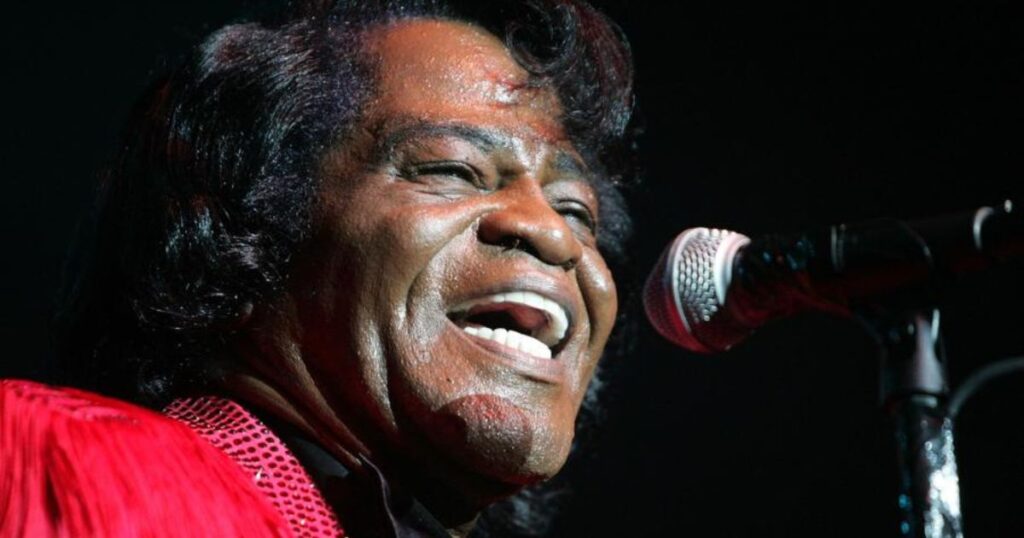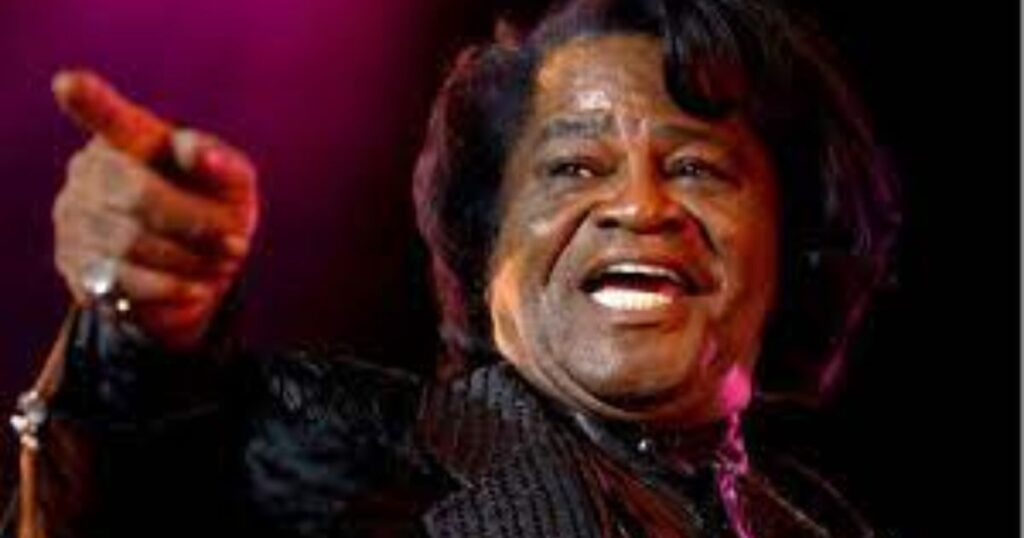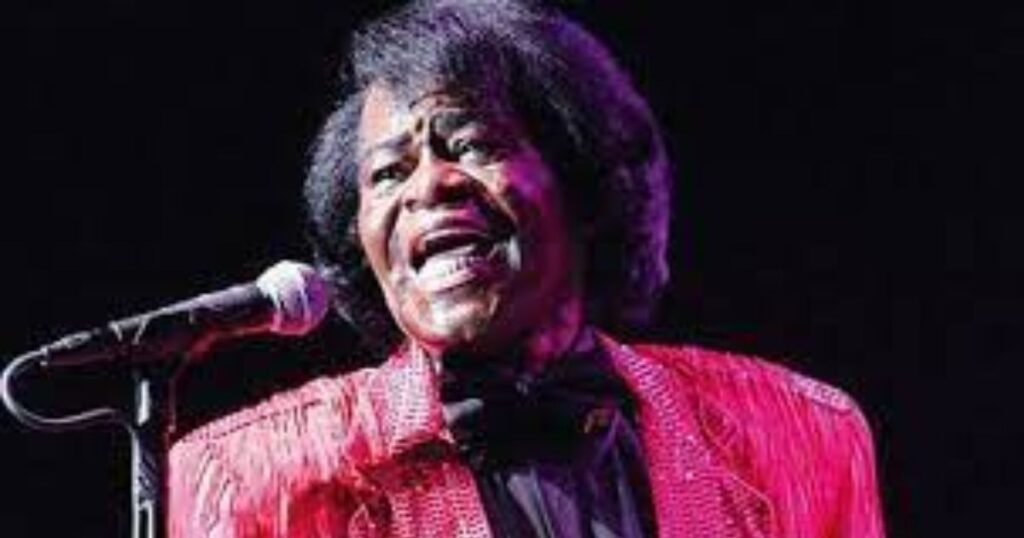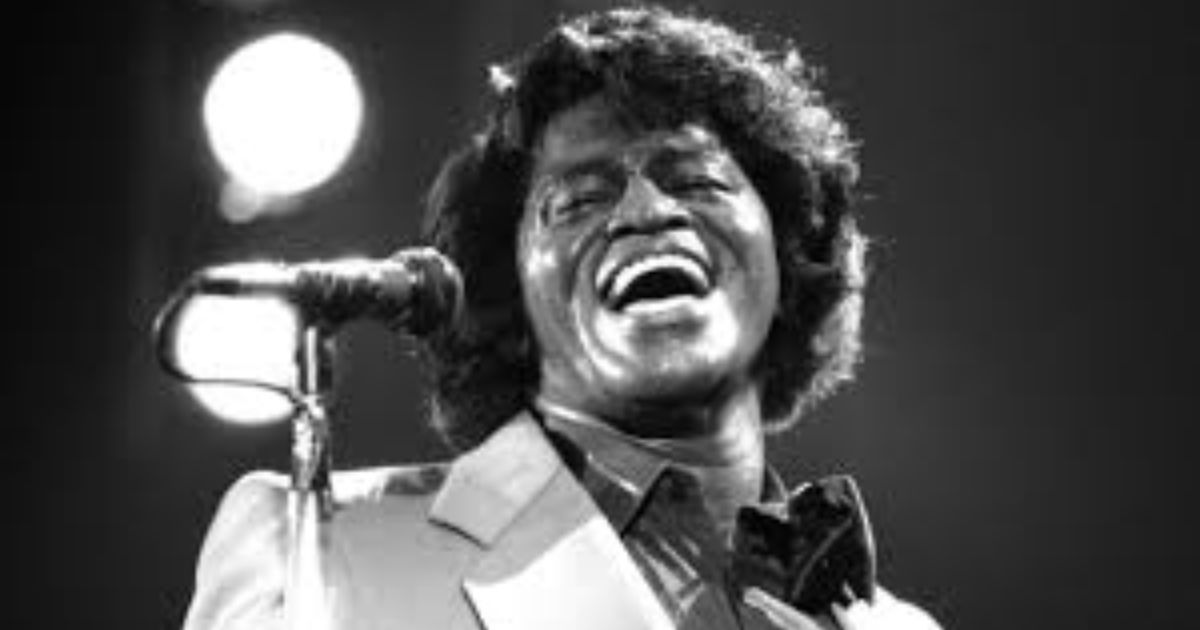The legacy of James Joseph Brown, better known worldwide as the Godfather of Soul, extends far beyond his revolutionary music. In 2024, his estate continues to generate substantial wealth, with his net worth holding steady at an impressive $100 million. This comprehensive analysis delves deep into the financial empire of one of music’s most influential figures, exploring how his wealth continues to grow even years after his passing.
Quick Facts: The Man Behind the Legend

| Category | Details |
| Legal Name | James Joseph Brown |
| Born | May 3, 1933 |
| Birthplace | Barnwell, South Carolina |
| Died | December 25, 2006 (Age 73) |
| Parents | Susie Behling, Joseph Brown |
| Education | Dropped out after 6th grade |
| Marriages | Velma Warren (1953-1969), Deidre Jenkins (1970-1981), Adrienne Rodriguez (1984-1996), Tomi Rae Hynie (disputed) |
| Children | 9 acknowledged |
| Primary Income Sources | Music royalties, performances, publishing rights |
| Legacy Value | $100 million (2024 estimate) |
The $100 Million Question: James Brown’s Net Worth in 2024

The financial legacy of James Brown has proven remarkably resilient, maintaining its substantial value through careful management and continued revenue generation. His estate’s worth of $100 million in 2024 represents not just past earnings, but an actively growing portfolio of assets and rights that continue to generate significant income.
When compared to his contemporaries, Brown’s estate value stands impressively alongside other music industry legends. While not reaching the astronomical heights of Michael Jackson’s estate, it surpasses many of his peers from the same era, including Ray Charles and Little Richard. This positioning reflects both his immense influence on popular music and his business acumen.
Building an Empire: From Gospel to Gold

James Brown’s path to financial success mirrors his artistic journey – starting from humble beginnings in Georgia’s gospel circuit to becoming a top-grossing performer. His breakthrough came with “Please, Please, Please” in 1956, marking the beginning of a career that would revolutionize multiple genres and establish numerous revenue streams.
His early understanding of the music business set him apart from many contemporaries. While others focused solely on performing, Brown diversified his income sources early, investing in:
Radio stations
Real estate ventures
Music publishing rights
Record label partnerships
The Money Makers: Primary Revenue Streams

Throughout his career and continuing today, Brown’s wealth has flowed from multiple channels. His music catalog remains one of the most valuable in history, consistently generating income through:
Streaming and Digital Sales Modern platforms have given new life to Brown’s extensive catalog, with millions of monthly streams across services generating steady revenue for his estate.
Licensing and Sampling Brown’s music stands as some of the most sampled material in hip-hop history, creating a perpetual income stream through licensing fees and royalties.
Publishing Rights The ownership of his publishing rights continues to be a major asset, with his compositions being used in films, advertisements, and television shows worldwide.
The Gift That Keeps Giving: Music Catalog Value
The value of Brown’s music catalog rights extends far beyond traditional album sales. His influence on modern music, particularly in hip-hop and R&B, has made his catalog one of the most sampled in history. Each use of his work in new recordings generates additional revenue through:
- Sample clearance fees
- Publishing royalties
- Performance rights income
- Sync licensing for media use
Legal Battles and Estate Management

The path to establishing Brown’s current estate value wasn’t without challenges. Following his death, extensive estate disputes emerged, particularly concerning his relationship with Tomi Rae Hynie. Courts eventually ruled their marriage invalid, leading to significant changes in estate distribution.
The resolution of these disputes has led to a more structured management of his assets, with clear guidelines for:
- Asset distribution
- Royalty management
- Scholarship fund administration
- Future earnings allocation
Awards, Achievements, and Financial Impact
Brown’s numerous accolades, including multiple Grammy Awards and induction into the Rock and Roll Hall of Fame, didn’t just recognize his artistic achievements – they significantly enhanced his earning potential. Each major award increased his booking fees and strengthened his negotiating position for contracts and appearances.
Giving Back: The Legacy of Philanthropy
Despite his wealth, Brown never forgot his humble beginnings. His estate continues to support underprivileged students through scholarship programs in South Carolina and Georgia. This philanthropic focus reflects Brown’s belief in education as a path to success, despite his own limited formal schooling.
Asset Breakdown and Future Prospects
The current $100 million valuation of Brown’s estate comprises various assets:
- Music catalog rights (estimated 45% of total value)
- Real estate holdings (20%)
- Business investments (15%)
- Liquid assets and cash (10%)
- Personal items and memorabilia (10%)
Looking Forward: The Future of the Brown Estate
The future value of James Brown’s estate appears secure, with several factors supporting continued growth:
- Increasing streaming revenue
- Growing sampling demand
- Rising value of classic catalogs
- Expansion of licensing opportunities
- Potential biopic and documentary projects
His influence on artists from Bootsy Collins to modern performers ensures his work remains relevant and commercially valuable. While contemporaries like Aretha Franklin, The Rolling Stones, and Stevie Wonder have shown how classic artists can maintain commercial viability, Brown’s unique position as the “Godfather of Soul” gives his catalog particular staying power.
Final Thoughts
James Brown’s financial legacy stands as a testament to both his musical genius and business acumen. From his early days performing in Georgia to building a $100 million empire, his story demonstrates the lasting value of innovative artistry combined with smart business decisions. As new generations discover his music and technology creates new revenue streams, the financial impact of the Godfather of Soul seems set to continue growing well into the future.
The Evolution of Brown’s Business Empire
The story of James Brown’s wealth accumulation goes beyond music sales and performances. Early in his career, the Godfather of Soul demonstrated remarkable business insight by taking control of his master recordings, a move that was revolutionary for African American artists of his era. This decision would later prove instrumental in building his financial legacy.
Throughout the 1960s and 1970s, Brown expanded his business interests strategically. He acquired several radio stations, including WJBE in Knoxville, Tennessee, recognizing the importance of media ownership in the music industry.
These investments provided not only additional revenue streams but also guaranteed airplay for his music, effectively creating a self-sustaining promotional platform.
Recording Industry Innovation and Income
Brown’s approach to recording and releasing music was equally innovative. He maintained a punishing recording schedule, often releasing multiple albums per year. This prolific output meant that while individual album sales might vary, the cumulative effect on his income sources was substantial. His studio efficiency also meant lower recording costs, maximizing profit margins on each release.
The introduction of his own production company, Fair Deal Records, allowed Brown to capture more value from his creative output. This vertical integration strategy meant that more revenue stayed within his business empire rather than being lost to external producers and companies. The model he established would later influence artists like Michael Jackson and Prince in their pursuit of creative and financial independence.
Live Performance Legacy and Revenue Generation
James Brown’s reputation as the “Hardest Working Man in Show Business” wasn’t just a catchy nickname – it was a crucial component of his wealth-building strategy. His live performances were legendary not only for their energy and showmanship but also for their frequency. During his peak years, Brown would perform upwards of 300 shows annually, each performance adding to his growing fortune.
His concert fees steadily increased throughout his career, reflecting both his growing popularity and savvy negotiation skills. By the 1970s, he had become one of the highest-paid performers in the industry, commanding premium fees for both domestic and international appearances. This income stream proved particularly valuable as it was less dependent on radio play or changing musical trends.
The Impact of Music Publishing Rights
Perhaps the most significant aspect of Brown’s financial portfolio was his approach to music catalog management. Unlike many artists of his era who sold their publishing rights for quick cash, Brown maintained control of his catalog, understanding its long-term value.
This foresight has proven especially valuable in the digital age, where his estate continues to benefit from:
Streaming revenue from platforms like Spotify and Apple Music Licensing fees for use in films, television, and advertisements Sample clearances for use in new recordings Performance royalties from radio play and public performances
Estate Planning and Wealth Distribution
The complexity of Brown’s estate planning reflected both his business acumen and personal values. His will, while contested after his death, showed careful consideration for both his family’s future and his philanthropic goals.
The establishment of the James Brown Education Foundation demonstrated his commitment to helping underprivileged students access educational opportunities he never had.
Modern Revenue Streams and Digital Influence
In 2024, Brown’s music continues to find new audiences through digital platforms. His influence extends across genres, with artists from hip-hop to electronic music regularly sampling his work.
Each sample clearance generates revenue for his estate, while streaming platforms introduce his music to younger generations, ensuring steady royalties continue flowing.
The value of his music catalog rights has appreciated significantly in the streaming era. As digital platforms become increasingly dominant in music consumption, the reliable income from his extensive catalog of hits provides stable returns for his beneficiaries.
This digital renaissance has helped maintain the estate’s value at $100 million, with potential for further growth.
Comparative Analysis with Contemporary Legends
When examining James Brown’s current net worth alongside other music legends, several interesting patterns emerge. While some contemporaries like Ray Charles and Little Richard saw their estates stabilize or decline, Brown’s has maintained its value through careful management and the enduring appeal of his music.
Artists like Aretha Franklin and Marvin Gaye have similar posthumous earning patterns, though Brown’s diverse business interests set his estate apart.
The Future of the Brown Financial Legacy
Looking ahead, several factors suggest the potential for continued growth in the value of James Brown’s estate. The increasing popularity of music catalog acquisitions by investment firms and the growing importance of classic songs in the streaming economy point to sustained or increasing revenue potential.
Additionally, upcoming projects, including biographical films and documentaries, promise to introduce new generations to his music, potentially driving further growth in streaming and licensing revenue.
Educational Impact and Scholarship Programs
The James Brown Education Foundation continues to fulfill its mission of providing educational opportunities. The foundation has awarded millions in scholarships, focusing particularly on students in South Carolina and Georgia.
This investment in education reflects Brown’s understanding of the transformative power of learning, despite his own limited formal education.
Protecting and Growing the Legacy
The management of James Brown’s estate today involves a delicate balance between preserving his artistic legacy and maximizing financial returns. Professional asset managers work alongside music industry experts to ensure his catalog remains both culturally relevant and commercially viable. This approach has helped maintain the estate’s significant value while ensuring his music continues to influence new generations of artists and audiences.
FAQ’s
How much is James Brown’s net worth?
James Brown’s estate is worth $100 million as of 2024. This value comes from music royalties, real estate, and other business investments. His catalog continues to generate income through streaming and sampling.
Who is the king of soul music?
Sam Cooke is widely known as the “King of Soul.” However, James Brown earned the title “Godfather of Soul” for his revolutionary impact on soul music. These two artists defined different aspects of the soul genre.
How many records did James Brown sell?
James Brown sold over 50 million records worldwide during his lifetime. His songs appeared on the Billboard charts 99 times. He released 17 singles that hit #1 on the R&B charts.
How much money did James Brown leave his kids?
The exact amount each child received remains unclear due to legal battles. Brown’s will initially left most of his estate to charity through scholarships. After court settlements in 2021, his children received his music rights and some personal assets.
Who got most of James Brown’s money?
Following years of legal disputes, Brown’s children and grandchildren received the majority of his music rights. The rest of his estate was split between scholarships for underprivileged children in South Carolina and Georgia. His disputed wife Tomi Rae Hynie was excluded after courts ruled their marriage invalid.
What was Prince’s net worth?
Prince’s net worth at the time of his death in 2016 was estimated at $300 million. His estate has since grown to approximately $500 million in 2024. This includes his vast music catalog, master recordings, and Paisley Park property.
Conclusion
James Brown, the legendary “Godfather of Soul,” has left an enduring financial legacy valued at around $100 million in 2024. His wealth stems from multiple income sources, including royalties, live performances, and a vast music catalog. Beyond his earnings, Brown was a savvy businessman, investing in radio stations and real estate, and retaining publishing rights to his work, ensuring steady income. Legal battles followed his passing, delaying estate distribution, but his children now benefit from his assets. His philanthropic focus, notably scholarships for underprivileged students, underscores his lasting influence, ensuring his legacy impacts generations to come.
Click Here For More Blog’s:









